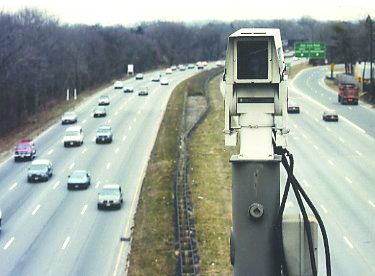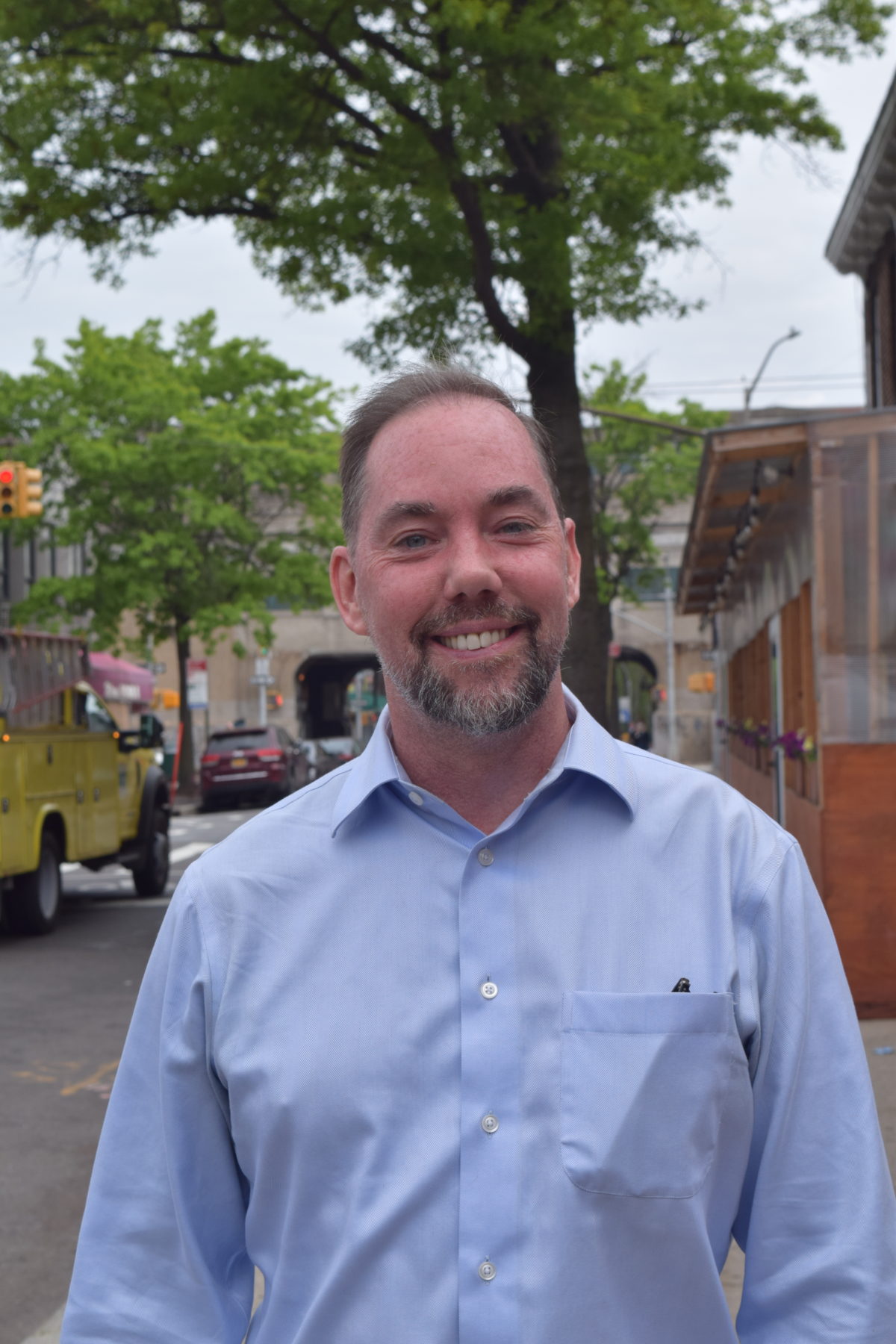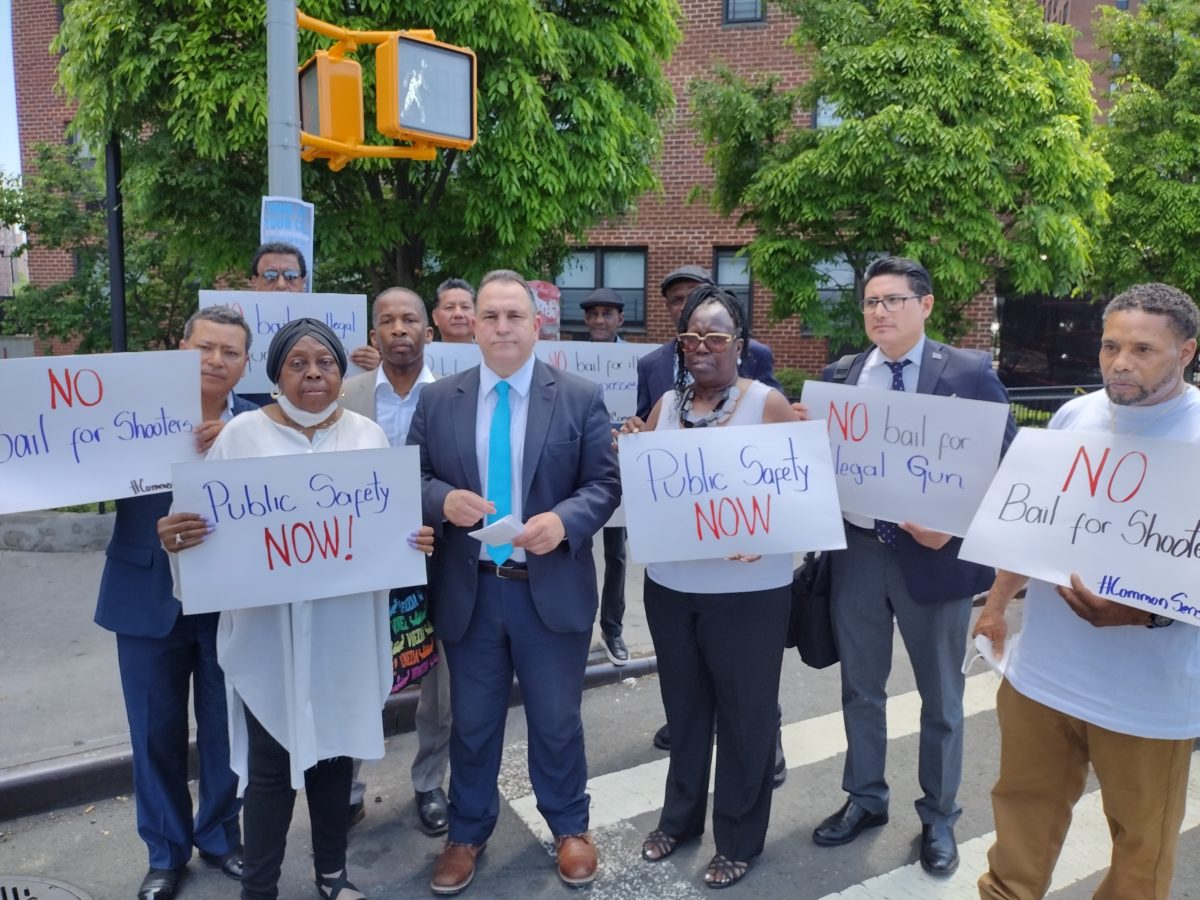Eighty years, four sets of owners, and numerous generations of supporters later, Jones Surgical Co. has decided to close its doors.
The iconic, long-standing mom-and-pop shop has been a staple in Forest Hills and the rest of Queens, providing its customers with all of their medical supply needs.
Rita Lieberman, who co-owns the business with her husband Michael, said that the closure came as a result of the COVID-19 pandemic, as well as folks turning to online shopping.
“It became untenable during COVID for a variety of reasons,” Lieberman said. “Sometimes, people would call or come in, get as much information as they could, and order online. To be honest, we knew that it was coming down the pipes, it’s just that COVID sped up the process probably by five or more years. The price of rents, cost of goods, supply chain issues, and fighting Amazon and other big box stores made it come to a point where a little mom and pop couldn’t survive anymore.”

The interior of Jones Surgical Co.
Although residents can no longer admire the well-known green exterior on Metropolitan and Continental Avenues, the Liebermans are still operating Jones Surgical Co. on a wholesale basis to its established clients.
Lieberman acknowledged that the closure of Jones Surgical Co. has left a void in the community and even the borough, which prompted many residents to reach out.
Michael Perlman, a fifth generation Forest Hills resident, preservationist, and columnist with The Forest Hills Times was one of them.
Upon hearing about the closing of Jones Surgical Co., Perlman submitted a detailed proposal to the Liebermans, suggesting ways to preserve the shop’s exterior—which they agreed to.
“Certain community residents brought it to my attention, and people expressed interest in seeing the signage and other features preserved,” Perlman said. “Immediately, I felt like I was a man on a mission.”
In April, Perlman met with the Liebermans along with the co-founder of Noble Signs/NY Sign Museum, David Barnett, who would facilitate the preservation.
Perlman said it was important to get Jones Surgical Co. preserved because, much like the other mom-and-pops in the neighborhood—Eddie’s Sweet Shop, Knish Knosh, and Aigner Chocolates—Jones provided residents with an “extended family” and a story to tell.
“My goal is to preserve as many architecturally and culturally significant sights as possible, anything beautiful that has a story to tell. It’s a shame how many community cornerstones are closing nowadays, especially, and how many historical and picturesque buildings are being demolished or essentially altered,” he said.
“They build community, and it’s very important to take every measure possible to help and hopefully preserve and support mom-and-pop style businesses. It grants soul to our communities.”
He admired the mid-century ambience the location had to offer, with the indoor tin ceilings and art deco style exterior.
 In fact, the bottom portion of the storefront’s columns had the manufacturer’s name on them, Jason Store Fronts, as well as the vintage telephone number.
In fact, the bottom portion of the storefront’s columns had the manufacturer’s name on them, Jason Store Fronts, as well as the vintage telephone number.
Perlman has also sought out to preserve other Forest Hills community staples, including Tower Diner, which has already been demolished, and Trylon Theater/Ohr Natan Synagogue.
“I didn’t want to see another prime example of commercial archaeology ending up in the dumpster,” he said.
“From an artistic perspective and historical perspective, these things enrich us. Our history is irreplaceable, and we should feel inspired and take pride in our heritage.”
Barnett and his team executed the preservation of the shop’s exterior, and it is currently being worked on inside Noble Signs’ studio in East New York, Brooklyn.
The New York Sign Museum hopes to have a dedicated space and be open to the public by the end of 2022, but the studio space where the sign sits now is open to appointments for interested community members.
“I love the fact that the sign is preserved. I hope to be able to one day visit it and all the other things being preserved when that comes to fruition,” Lieberman said. “I look forward to taking my grandchildren to see it.”
Perlman is thankful that the signage and columns were able to be preserved, but he misses the actual business.
“I’m very determined to help the New York Sign Museum find a more permanent spot where so many more people can benefit simultaneously,” he said. “Our community and city is rich in history and architecture, and I’m tired of seeing these sites undergoing demolition and alterations.”

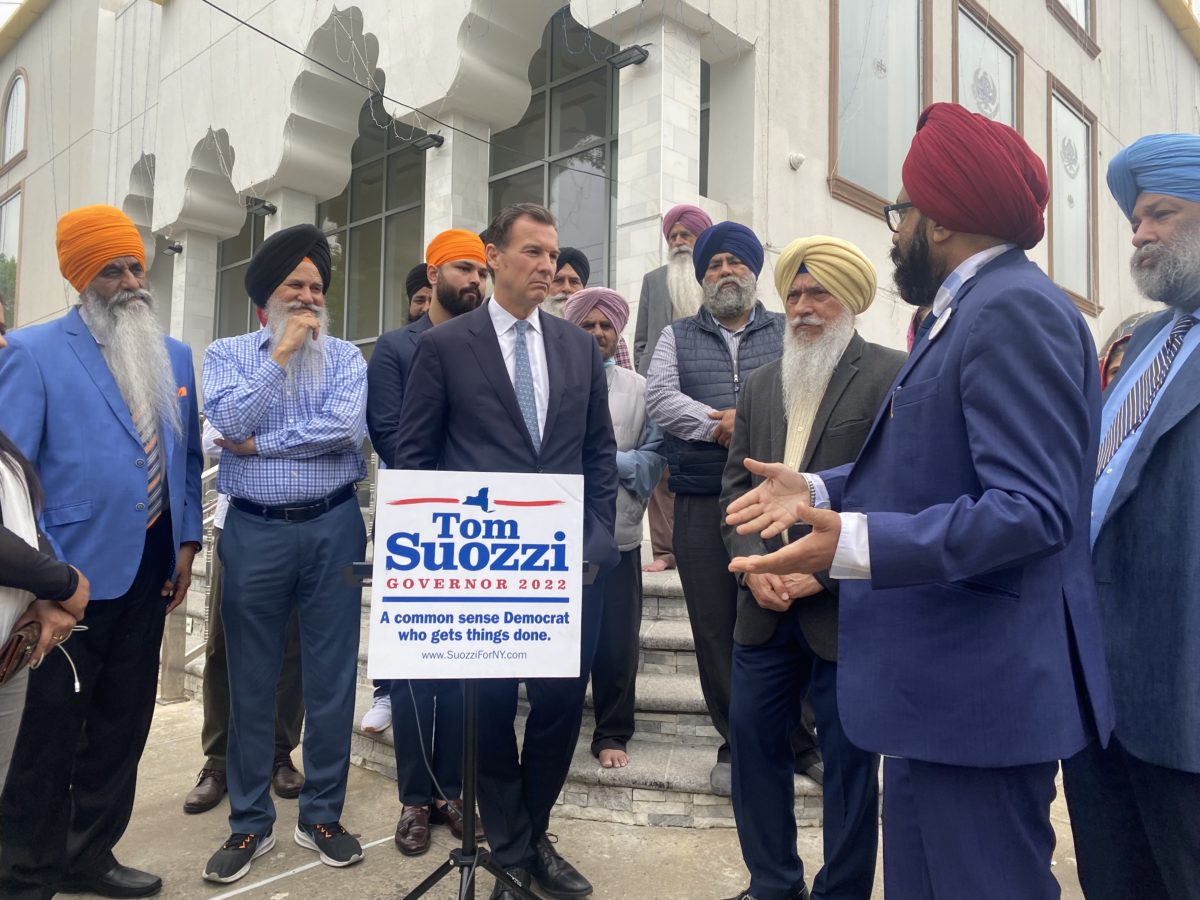

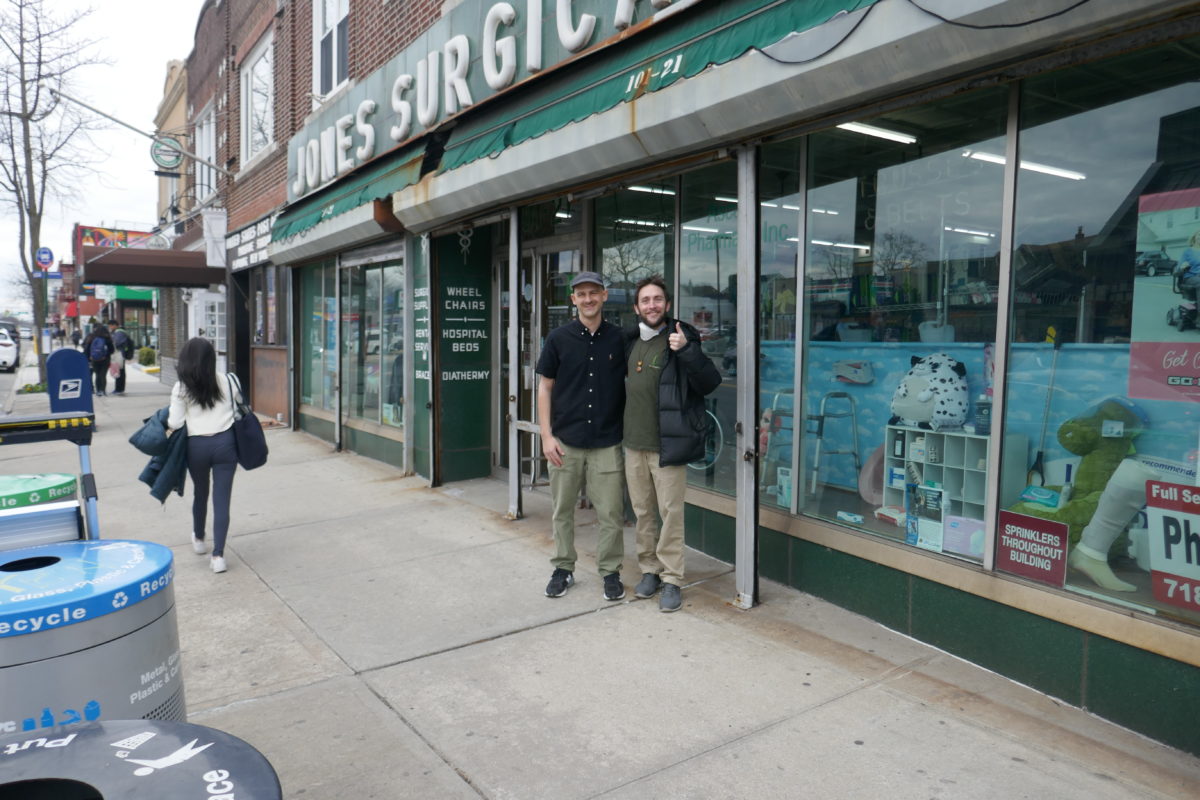

 In fact, the bottom portion of the storefront’s columns had the manufacturer’s name on them, Jason Store Fronts, as well as the vintage telephone number.
In fact, the bottom portion of the storefront’s columns had the manufacturer’s name on them, Jason Store Fronts, as well as the vintage telephone number.